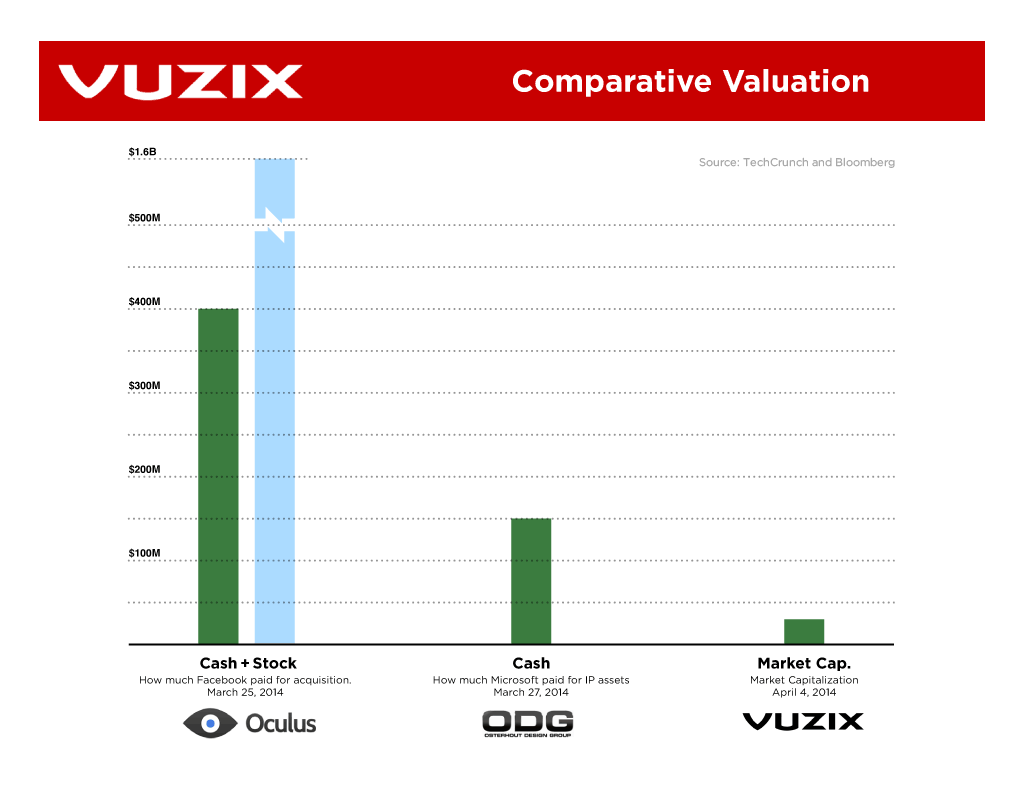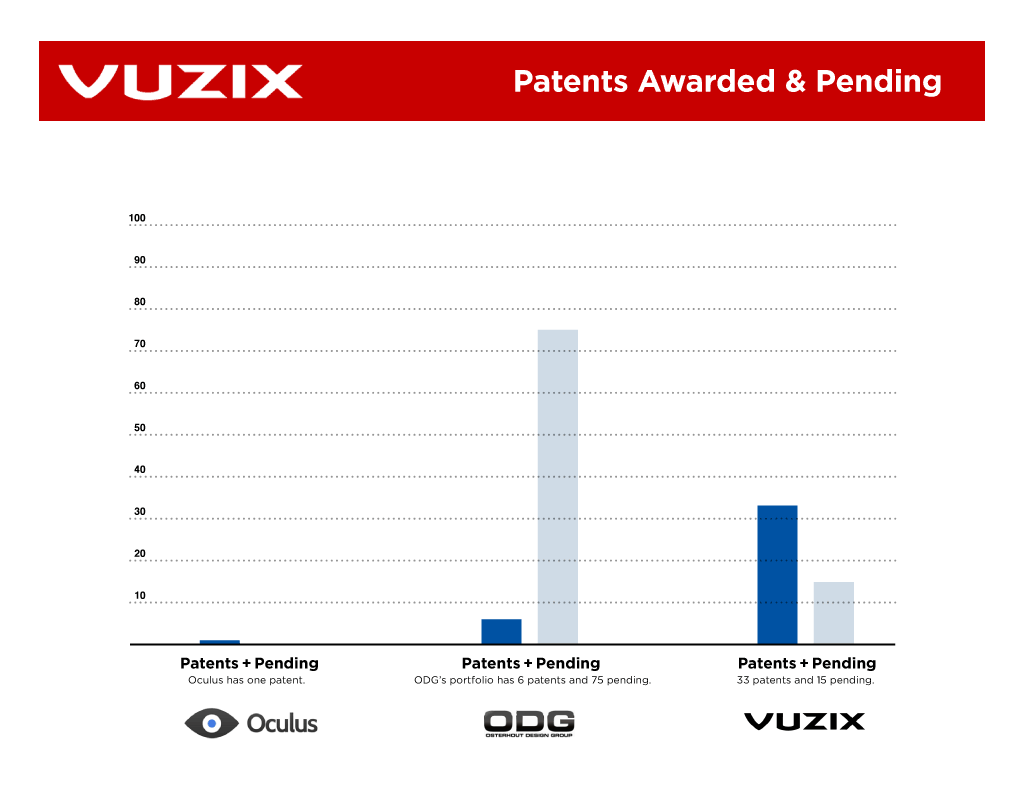Virtually Undervalued
 Monday, April 7, 2014 at 6:50AM
Monday, April 7, 2014 at 6:50AM 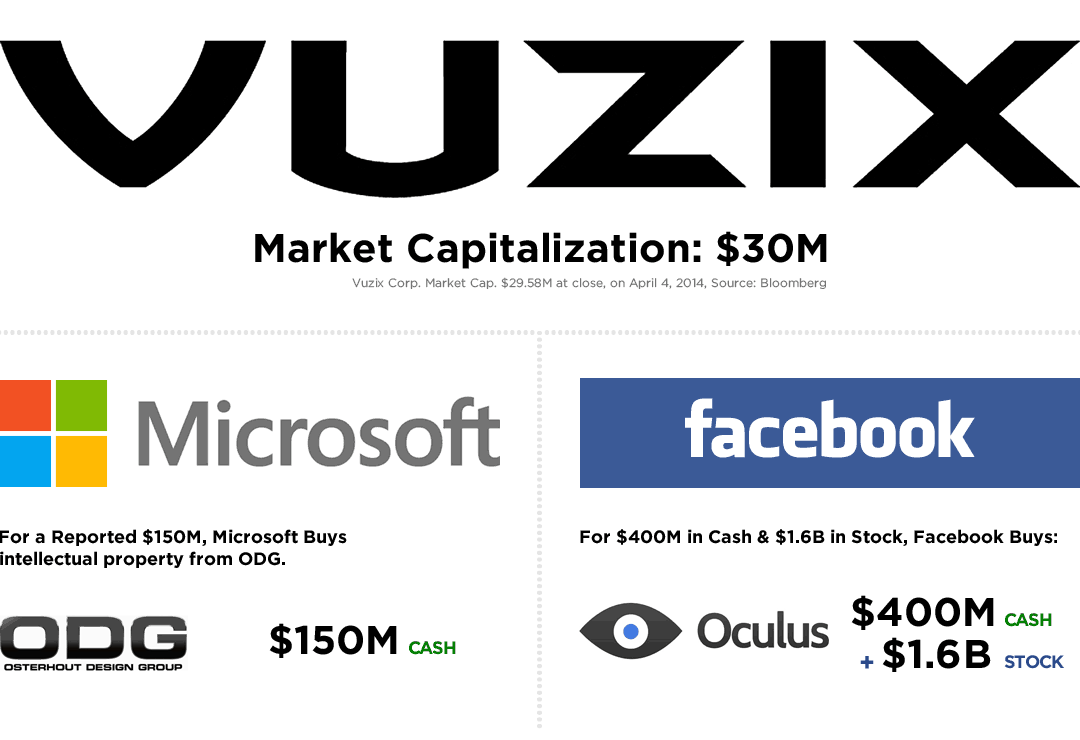
With the recent acquisitions of Oculus by Facebook, and of ODG’s wearable technology IP portfolio by Microsoft, the elephant in the room is Vuzix. Vuzix is one of the longest running players in the HMD video eyewear space. Founded in 1997 by Paul Travers, Vuzix’s story goes back even further. Paul launched his first virtual reality company, Forte Technologies, in 1992. Forte folded in 1997, and with an angel investment from John Fan, Paul purchased Forte’s assets as the foundation of his new company, then called Interactive Imaging Systems. A 2005 rebranding resulted in the name Icuiti, before eventually rebranding again in 2007 as Vuzix, that we know today.
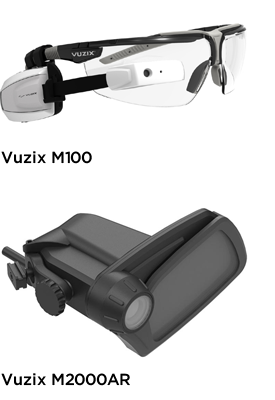
Like the Raytheon night vision optics contract that helped launch the company, Vuzix has historically kept itself afloat with military contracts and grants, while introducing various eyewear products into the consumer electronics space.
In 2012 Vuzix sold off its Tactical Display Group, while retaining the right to pursue military contract work incorporating it’s new waveguide based technology (an alternative display technology to the more traditional prism optics, such as those used in Google Glass).
What makes Vuzix so interesting right now is the fact that, just days apart, Facebook closed a deal to acquire virtual reality eyewear company, Oculus, who have yet to release their product; and Microsoft acquired a collection of IP assets from Osterhout Design Group, for wearable patents, most notably related to augmented reality, virtual reality, and head-worn display systems, who also do not have a product in market, based on this IP.
Let’s look at these two deals.
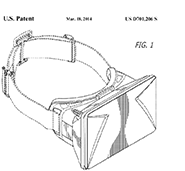
The Oculus acquisition has been reported on negatively by some, for a variety of reasons: besides criticism from the gaming community over the fit of suitor, many believe the purchase was overpriced, and furthermore, that for their $2B, Facebook acquired a whopping single patent. Not only this, but that Facebook had paid this exorbitant price for a company that did not yet have a product released. I already defended Zuckerburg against the gaming community in my previous article. As for the price, while $2B was the number widely publicized, more than 3/4 of this was in the form of stock. Only $400M was in cash. Whether the product has sufficient IP protection is to be seen, however I can vouch for the quality of the user experience myself, as I own an Oculus developer prototype — the Oculus is a device that is far superior to VR headsets that have come before. More than that, hardware is hard. Oculus has a manufacture-ready prototype, and seeing is believing. It’s one thing to own a pile of IP on paper, Oculus has a product, the Oculus Rift is the current state-of-the-art, and it is mass production ready. There is also tremendous synergy to this deal. Speaking as someone on the inside of the VR world — I have for a long time been of the opinion that to jump from a gaming novelty device to a mass market product, VR needs not only a superior product (and Oculus is a “x10”), but also needs to be attached to a real life network of people the user knows (yes, this goes entirely against conventional wisdom, and love of anonymity, in the VR space). I am bullish. Oculus is going to be huge.
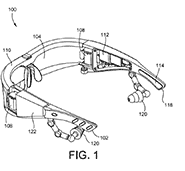
Now let’s look at the Microsoft acquisition. It has been much ballyhooed as a purchase of “81 patents” from Osterhout Design Group. Let’s stop there. This is not true. It is an acquisition of 6 patents, and 75 patents pending. That is a big difference. Furthermore, ODG has not yet produced a product from these patents, so while it may looks good on paper … more concerning to me is the quality of the IP. Consider that Vuzix’s patents go back over a decade and are backed up by years worth of products that have come to market. ODG’s patents, on the other hand, could have the appearance of a patent mill. Ralph Osterhout is a serial entrepreneur who first found success in the 70s, in scuba diving equipment. In the 80s he began making military devices, including some early night vision goggles. More recently Ralph expanded his focus into the toy market, as a subcontractor, designing toys for other brands, while continuing with military contract work. Many of the patents Microsoft acquired were filed very recently, and rapidly. It has the appearance of someone maneuvering to cover all conceivable bases, and leverage the USPTO’s “first-to-file” law that went into effect in March of last year. Given the recent gold rush in both AR and VR video eyewear systems, Microsoft very well may have bought this portfolio for defensive purposes. The worst case is that they bought the portfolio in the hopes of trolling for licensing fees. Osterhout is a rather brilliant fellow. I suspect he may have seen an opportunity not in the wearable market, per se, but in the IP market, and crafted a portfolio specifically for an IP sale, rather than a product (EDIT: On this I proved wrong, they’ve both since come to market with products).
So this brings us back to Vuzix — with a deep and mature AR & VR HMD focused patent portfolio, with almost 5 times as many awarded patents as Oculus and the ODG portfolio combined — all the while, with a market cap of only $30M — while ODG and Oculus are doing nine and ten figure deals.
CEO, Paul Travers owns ∼18% of the outstanding shares. As a publicly traded company with such a low market cap., compared to these recent deals, it will be interesting to see how long Vuzix will remain independent.

Another actor worth watching on this stage is SBG Labs Inc. (Switchable Bragg Grating Laboratories, and doing business as “DigiLens”). SBG is privately held. They claim in excess of 60 patents in the video eyewear space, many relating to waveguide technology, not unlike Vuzix is working on more recently, with their M2000AR model. These same recent acquisition deals will impact SBG’s valuation, and could also make them an acquisition target. They do no marketing or branding of any kind. As a private company details are obscure, but their principle source of cash flow appears to be a strategic partnership with Rockwell Collins that began in 2012.
DISCLOSURE: Last year I organized an event in partnership with Vuzix CEO, Paul Travers. I have no investments in any company here, and nothing on this page should be taken as “investment advice.”
